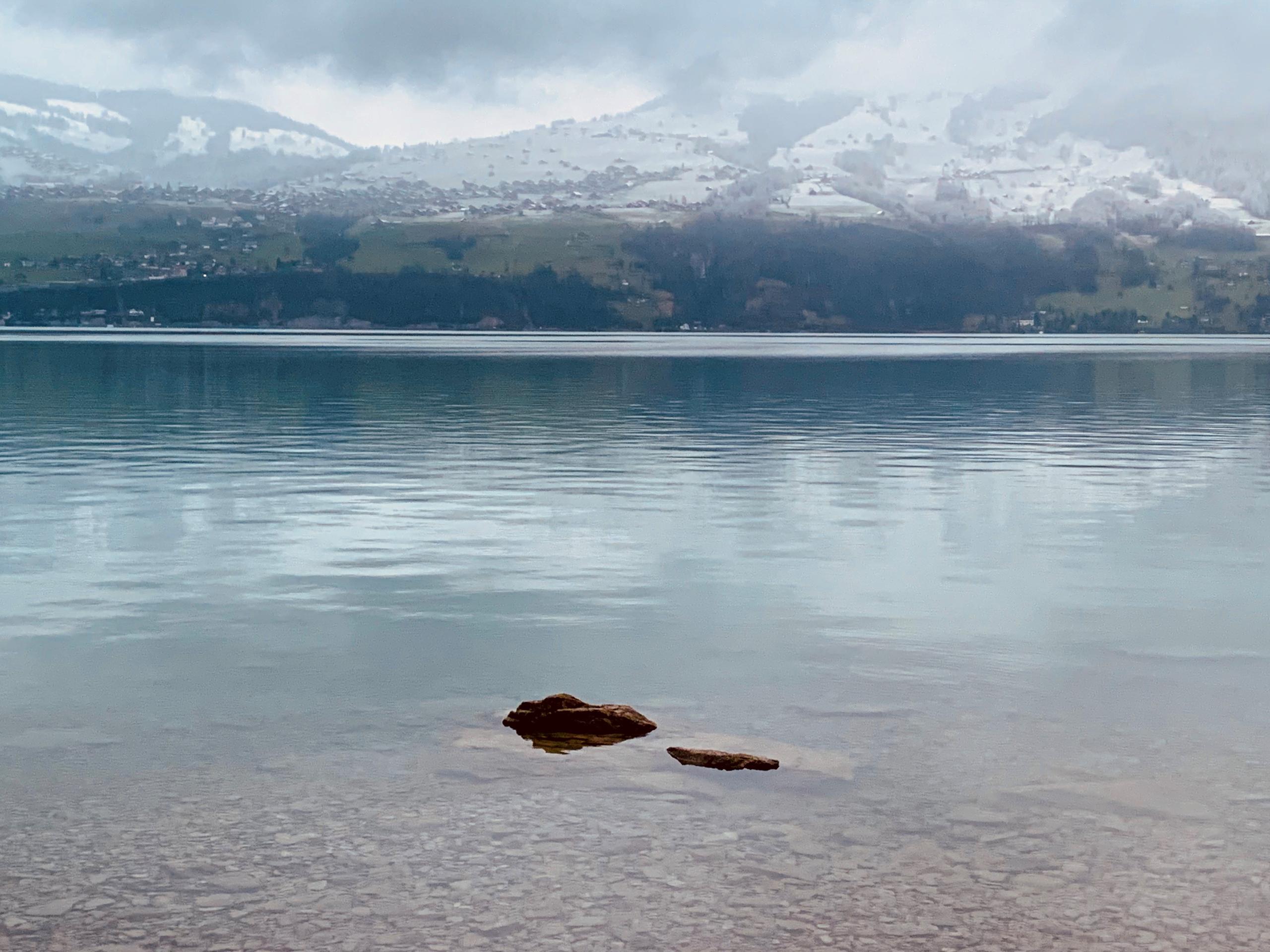Greetings from my home office in the Swiss Alps
There are certainly worse places to work from. I know I am very privileged in this regard, especially since the authorities have appealed to residents not to abandon towns and cities for the mountains.
I have been compensating for the physical activity I usually get during my daily commute to Bern with a peaceful morning walk along the lakeshore and an early evening cycle in the mountain valleys behind my house.

The temptation for many Swiss to enjoy the same benefits is very real, since a lot of them own chalets or apartments in the mountains that are within a relatively short drive or train journey from their urban homes. But the powers that be have warned against such travel for fear the coronavirus will spread to small alpine communities which lack the medical facilities to deal with an outbreak.
The municipality of Onsernone in the southern canton of Ticino is one example. According to reports, nearly half of the population of about 700 souls is over 65 years of age. They are served by only one local doctor. Yet the population often swells at Easter and in summer because many of the houses in the picturesque valley are holiday residences owned by Swiss living just a few hours away by car.
Wishing to avoid the worst, the municipality sent a letter in late March to all owners of second homes asking them to stay away, warning that the police would only allow access to those who needed to be there on urgent grounds. The announcement was also published about a week later in Zurich’s Tages-Anzeiger newspaperExternal link, since the Easter school break normally sees convoys of German-speaking families from north of the Alps head south to the warmer clime of Ticino.
Communities like Onsernone have had to take matters into their own hands since the federal government has not banned travel between communities or cantons outright, only recommending that residents curtail their movements. Hotels and non-hotel accommodation have been allowed to stay open, which has sent mixed messages to the population at large. But with restaurants, bars, and ski lifts closed, bookings have been rare.
A survey carried out in late March by the tourism research institute of the HES-SO university of applied sciences found that hotels were forecasting a 90% loss in revenue for April and a 73% drop in May.
Hotels, like most businesses, have been thrown a lifeline by the government. They can apply for bridging loans and credits to see them through the crisis.
Aid for the gig economy?
However, at the time of writing, it was unclear if financial aid would also be extended to so-called gig workers in the tourism sector, who have also been hit hard by the crisis. A self-employed tour guide contacted us, saying 90% of his bookings between February and July have been cancelled. And an owner of apartments advertised on Airbnb wrote to say he’s always done everything above board – declaring his income and making sure his clients pay the local tourist tax – but was worried he would not be eligible for assistance. Both wrote in after reading my story about Angela McMillan, an owner of a bed and breakfast in Leysin, a mountain resort in the Vaudoise Alps.
I’m used to conducting such interviews in person, but I had to hook up with Angela by video. I asked her to walk her Macbook around the chalet to give me a virtual feel of her rental property. I captured screenshots as she went. She said the mood in the village was somber. Even communication with other locals was largely taking place over Facebook and online messaging services. If you’d like to read about Angela’s situation, and likely thousands of others like her, here’s the link to the story.
The upcoming Easter weekend normally heralds the end of the Swiss ski season, but the coronavirus shut it down a month early this year, leaving skiers with only nostalgia for glorious spring skiing of years past. If you missed our photo gallery from early March highlighting what it was like in the Swiss Alps in skiing’s heyday, here’s another chance.
You can follow me on Twitter @dalebechtelExternal link.


In compliance with the JTI standards
More: SWI swissinfo.ch certified by the Journalism Trust Initiative

You can find an overview of ongoing debates with our journalists here. Please join us!
If you want to start a conversation about a topic raised in this article or want to report factual errors, email us at english@swissinfo.ch.